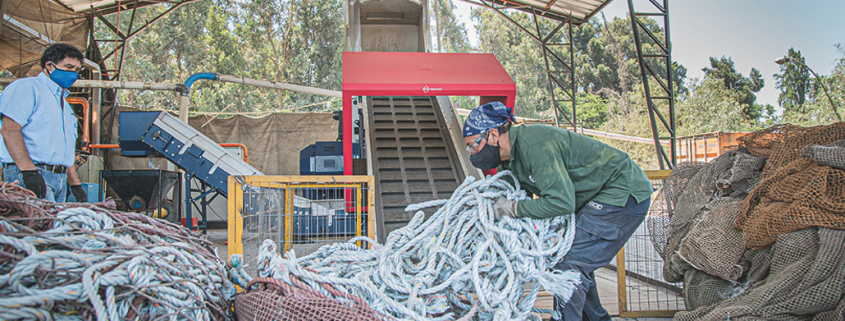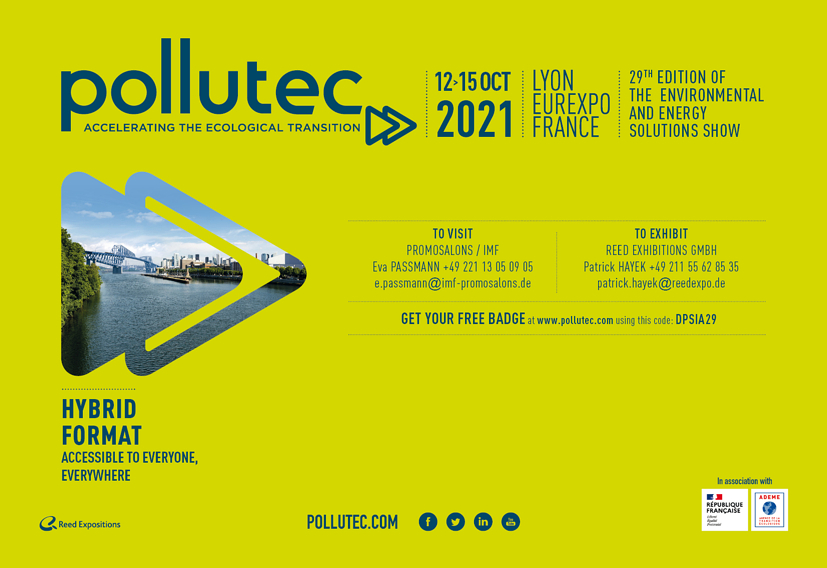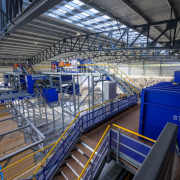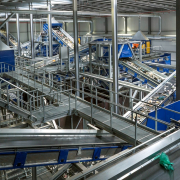Patagonia: Shredding Old Fishing Nets with Austrian Technique
Chilean plastics recycler Comberplast has successfully shredded old fishing nets and ropes collected from the Patagonian coasts for the past year with the shredder type Micromat 1500 from Austrian company Lindner.
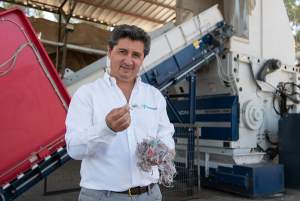
Julio JR Compagnon is pleased with the optimal output from Lindner’s Micromat 1500 ready for the next step in the recycling process (Photo: Lindner)
Nature lovers and globetrotters alike love Patagonia, the region at the southern end of South America, governed by Argentina and Chile. Michel Compagnon from Santiago de Chile is one of them. Besides the magnificent spectacles of nature, one thing, in particular, caught his eye: discarded fishing nets and ropes, which are a burden on the environment and can bring the life of many sea creatures to an unhappy end. When asked about this, the local fishermen simply described the carelessly discarded rigging as waste. But for Compagnon, Commercial Manager at the plastics recycling company Comberplast, the unpleasant scene became a project to save the oceans and the beauty of Patagonia. And that is how the Atando Cabos project started.
What began in 2016 with a handful of samples in a travel suitcase is now a project that transforms over 3,000 metric tons of ropes and nets into new products every year. The entire recovery process, from shredding and cleaning to the extrusion and injection molding of new products – for example, pallets for an international brewery or other products for the agricultural and mining industries – takes place on-site at the Comberplast facility in Santiago de Chile. For more than 25 years, the company has been committed to the circular economy, long before circular concepts in plastics recycling became the latest buzzword.
Since 2020, Comberplast has relied on the shredding technology of Lindner’s Micromat 1500, equipped with an optimized cutting system from the Mono-Fix kit. “We process plastic waste from fish farming and fishing companies. These materials were developed by very clever people not to ever break or tear. Shredding is, therefore, an especially big challenge,” Julio Compagnon, CEO of Comberplast and co-founder of Atando Cabos, was quoted by the Austria-based shredder provider. “In processing, we are always looking for new solutions to tackle more difficult projects and to keep production economically viable. In Lindner, we found an experienced partner who was willing to go the extra mile with us.”
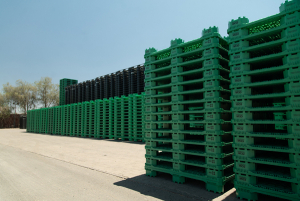
The plastic waste from the fishing and fish farming industries is used to produce, among other things, high volumes of pallets and crates (Photo: Lindner)
The delivered materials are usually heavily loaded with abrasive substances such as sand, stones or organic material. That is why, when selecting the shredder, the main concerns besides high energy efficiency were the costs of wear and tear. Now, after a year in operation, Compagnon is pleased: “We got the Micromat in January 2020 – just at the start of the pandemic. The situation required us to find new ways of commissioning and servicing despite the physical distance. Thanks to the great cooperation of the Lindner team in Austria, the Chilean sales partner Ingeniería Delta Limitada and our technicians here on site, we were able to successfully install and commission the shredder – everyone involved did an excellent job. Since then, our shredder has been running like clockwork and we look forward to many more joint projects in the future.”
www.lindner.com
www.comberplast.cl
(Published in GLOBAL RECYCLING Magazine 2/2021, Page 56, Photo: Lindner)

